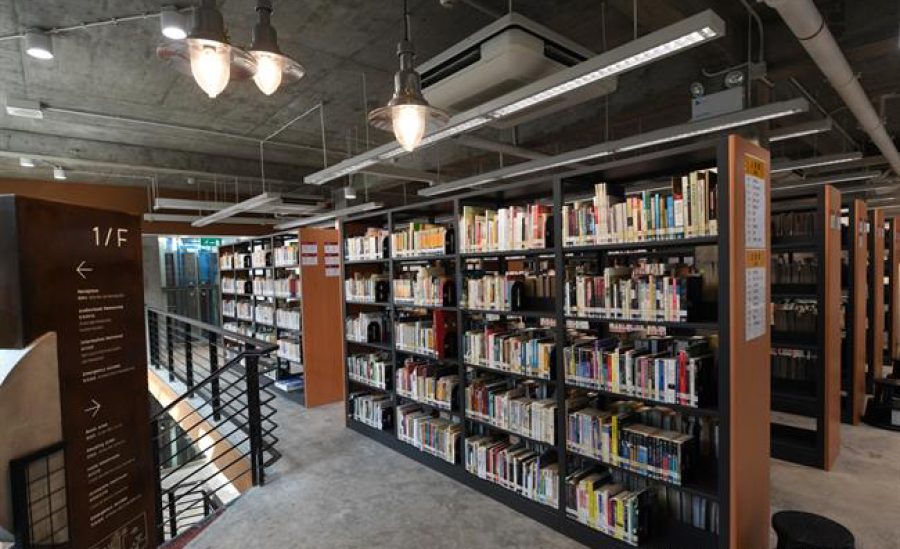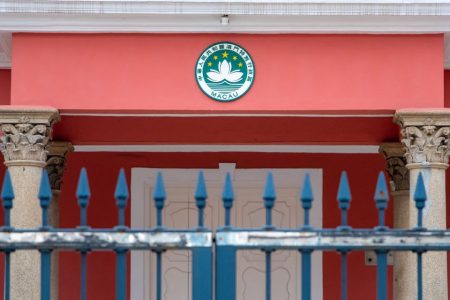The Cultural Affairs Bureau (IC) has failed to properly carry out processing tasks for its purchased books – such as their registration in its library catalogue system, sorting and cataloguing – so that a large number of books are still not on the bookshelves in its libraries for residents to use despite being purchased many years ago, the Commission of Audit (CA) said in a hard-hitting report Wednesday.
The report described the bureau’s library management as “chaotic”.
The commission also disclosed in the report the “unbelievably appalling” hygiene conditions in the bureau’s two book warehouses in industrial buildings. The report says that the “appalling” hygiene remained unchanged several months after audit officials had discovered the problem during their first inspections.
According to the report, audit officials saw a large amount of rodent droppings on books in one of the two book warehouses and also on the floor.
The report can be downloaded from the commission’s website http://www.ca.gov.mo/, in Chinese and Portuguese language versions.
According to the report, there were 16 public libraries and a mobile library vehicle in the city, all managed by the Cultural Affairs Bureau, as of February last year.
According to the report, the bureau primarily obtains books for its libraries by purchasing them, with some others donated by residents.
The bureau spent 8.45 million patacas on buying library materials – namely books, audio-visual materials, newspapers, journals, and electronic resources – for its libraries’ collections in 2012, while the amount spent increased to 11.54 million patacas in 2016, according to the report.
According to the report, the bureau’s libraries had a total collection of 1.03 million library items, including 946,153 books, as of May last year.
The audit officials carried out on-site inspections between March and December last year on the bureau’s two book warehouses – two units in industrial buildings that the bureau rents – to check whether the bureau’s staff properly carried out processing tasks for its purchased books before they are finally displayed on the bookshelves in its libraries for residents to read or borrow, the report says.
According to the report, after the bureau has purchased books, the first step is to check the items delivered and then accept them. Afterwards, the bureau’s staff members are supposed to register the books in its library catalogue system – inputting information such as the titles of the books and the names of the authors and publishers.
According to the report, the bureau’s staff members then are supposed to sort and catalogue the already registered books, before they are finally displayed on the bookshelves.
According to the report, among the bureau’s two book warehouses, one is located in Oceano Industrial Building (known as Oceano book warehouse) in Areia Preta district used for its staff members to carry out processing tasks for its purchased books, while the other is located in an industrial building in Patane district (known as central book warehouse) used to store less popular books taken from its libraries across the city as their bookshelf space is insufficient. Readers can request to borrow books that are being stored in the central book warehouse.
During an inspection visit to the Oceano book warehouse, audit officials discovered that the bureau’s staff members did not know how many books stored in the warehouse had not been registered in the public library catalogue system, according to the report.
During the inspection visit to the Oceano book warehouse, audit officials also discovered that many books that had been registered in its library catalogue system had still to be catalogued, the report says.
In response, audit officials then studied the bureau’s library catalogue system. They found that out of the 1.03 million library items as of the end of May last year, 105,826 had been registered but had still not been catalogued, the report says.
Among the 105,826 items, some 48,000 that had been registered for more than five years had still not been catalogued, while about 29,000 items registered for more than 10 years had still not been catalogued.
In addition, during the multiple inspection visit to the two book warehouses, audit officials also discovered that the hygiene conditions there were “unbelievably appalling”, the report says.
In addition to rodent droppings found in the central book warehouse, audit officials also discovered dead cockroaches near bookshelves in the warehouse, the report says, adding that they also found that the dead insects had still not been removed after they saw them during the first inspection there.
During inspection visits to the central book warehouse, audit officials discovered water leakage on its walls and ceilings, the report says.
According to the report, during inspections at the Oceano book warehouse, audit officials also saw that books stored on the bookshelves were covered in thick dust.
The report also says that the air quality in the Oceano book warehouse was poor due to a foul stench of mould.
In response to the report, Secretary for Social Affairs and Culture Alexis Tam Chon Weng said in a statement that he had ordered the bureau to tackle all the issues raised by the report.




